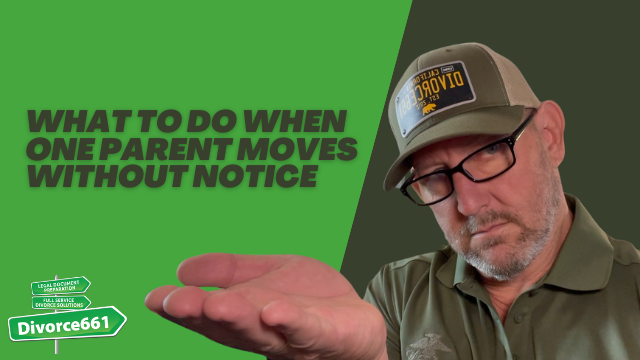What to Do When One Parent Moves Without Notice
When navigating co-parenting, one of the most challenging scenarios can arise when one parent relocates without informing the other. Understanding the legal landscape in California is crucial, especially if you share custody. This post will delve into what you can do if your ex moves without notice, the legal requirements surrounding parental relocation, and how to protect your custody rights.
Understanding the Legal Framework of Parental Relocation
In California, the law mandates that parents must notify the other parent before moving, especially if there are custody arrangements in place. This requirement aims to prioritize the child’s best interests and ensure that any changes in living arrangements do not disrupt established visitation schedules.
Custody Arrangements Impact Relocation
The impact of a parent’s move largely depends on the type of custody arrangement in place:
- Sole Physical Custody: The parent with sole custody has more flexibility regarding relocation but must still inform the other parent if the move significantly affects visitation.
- Joint Custody: If parents share joint custody, any move that disrupts the existing custody schedule requires court approval. Courts will evaluate whether the move is in the child’s best interests.
Legal Consequences of Moving Without Notification
If one parent relocates without notifying the other, it can be viewed as a violation of the custody agreement. Courts take these situations seriously, and the non-moving parent has the right to seek legal recourse to enforce the custody order or request modifications.
Filing a Request for Order (RFO)
The non-moving parent may need to file a Request for Order (RFO) to address the situation. This request can ask the court to:
- Enforce the existing visitation schedule.
- Modify custody arrangements if the relocation negatively impacts the child’s welfare.
Real-Life Case: Navigating Custody Modifications
Consider a situation where a mother moved out of state without notifying the father. After the father filed a motion with the court, the judge ruled that the move violated the custody agreement, requiring the child to be returned and mandating that future relocations receive court approval. This case emphasizes the importance of taking legal action promptly to protect your rights.
Steps to Take If Your Ex Moves Without Notice
If you find yourself in a situation where your ex has moved without informing you, consider the following steps:
- Document Everything: Keep records of all communications regarding the move and how it affects your custody agreement.
- Consult an Attorney: Seek legal advice to understand your options and the best course of action to take.
- File for Enforcement: If necessary, file a Request for Order to enforce visitation rights or modify custody arrangements.
The Role of Courts in Relocation Disputes
When disputes arise due to relocation, courts prioritize the child’s stability and continuity in their relationships with both parents. Several factors influence court decisions, including:
- The child’s age and relationship with both parents.
- The reasons for the move and its potential impact on the child.
- The feasibility of maintaining a meaningful relationship with the non-relocating parent.
Seeking Legal Guidance
Dealing with custody disputes, especially those involving relocation, can be emotionally taxing. It’s essential to have an experienced attorney who can guide you through the legal process and ensure your rights are protected. At Divorce661, we specialize in custody and relocation disputes, helping parents navigate these complex situations effectively.
Conclusion
When one parent moves without notifying the other, it can lead to significant legal challenges. Understanding your rights and the necessary steps to take can help protect your relationship with your child. If you find yourself facing this situation, don’t hesitate to reach out for legal support. The well-being of your child is paramount, and ensuring that their best interests are upheld should always be the priority.
For a free consultation, visit Divorce661 and learn how we can assist you in these matters.




